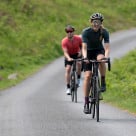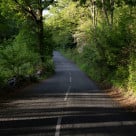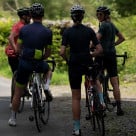British Cycling is delighted to today announce that it has reached its target of getting one million more women on bikes by 2020, a cornerstone of the organisation’s ongoing ambition to reduce the historic gender gap within the sport.
Chief executive Julie Harrington – who became the organisation’s first female CEO in 2017 – called the achievement a ‘momentous’ milestone in the sport’s development.
In launching its women’s strategy in 2013, British Cycling set out its vision to ‘inspire one million more women to ride, race and be part of British Cycling by 2020’. Then, according to British Cycling’s market data, 550,000 women cycled on a regular basis. Since then, 1,023,271 more women have been influenced to ride a bike.
Along with the headline figure of getting one million more women on bikes, the strategy also aimed to create opportunities to ride and race, develop a pathway that keeps women engaged, get more women running the sport, get more women involved in governing the sport and increase female membership.
In the years which have followed:
- British Cycling has introduced equal prize money across its men’s and women’s road series
- British Cycling has appointed its first female Chief Executive, and now has a Board made up of five male directors and seven female – surpassing the 2013 target of 25% female Board representation
- Four out of seven of the organisation’s discipline specific commissions has a female Chair, with 20% female representation across all commissions
- British Cycling’s flagship female participation programme, HSBC UK Breeze, has welcomed over 275,000 women on to its free, guided, women-only rides. The annual participation number has grown year-on-year, and in 2019, that figure was 59,796
- British Cycling’s female membership has grown from 9,500 to 29,000, and from 15% of its overall membership to 18%
- British women have won 57 elite world titles across the cycling disciplines (as well as 31 silver medals and 19 bronze), two Olympic and eight Paralympic titles, the most recent of those world titles being won by Elinor Barker in Berlin last weekend
- There has been a 70% increase in the number of female cycling coaches
- Between 2017 and 2019 there has been a 26.5% rise in the number of women (influenced by British Cycling) cycling at least weekly
- Over the same period - 2017 to 2019 - of all the women who increased their cycling from once a year to once a month, 48.9% have been influenced by British Cycling
Harrington said:
“In launching our women’s strategy in 2013, we spoke about how British Cycling pursues ambitious goals with seriousness and purpose. That is exactly how we have approached reaching this target in the seven years since; working alongside a fantastic and ever-growing network of organisers, coaches, volunteers and clubs, we have worked meticulously to ensure cycling is an appealing option for women, whatever their age, ability or aims on a bike.
“Back in 2013 we also referenced how, even if we were to hit this target, there would still be plenty of room for improvement. I’d like to reiterate that sentiment now – we know that there is still a huge amount of work to be done to ensure that cycling, and sport in general, is seen as truly equal, but we are incredibly proud to have reached this stage, and intend to put everything that we have learned over the last seven years into practice to ensure that this progress continues.”
The work which has seen the one million target achieved will continue over the next phase of British Cycling’s women’s strategic plan (2020-2025). In order to make cycling an attractive choice for even more women and girls, the organisation will continue to develop race and ride opportunities, enable more females to become volunteers and coaches, change the perception of cycling among women and girls from all backgrounds, and develop new opportunities, places and partnerships to support and empower women and girls to get into cycling.




